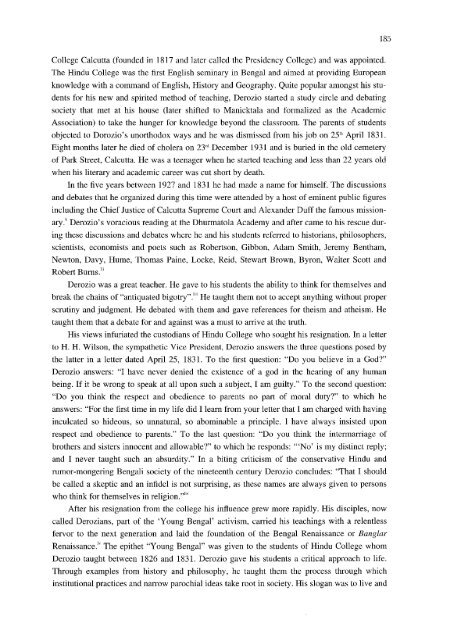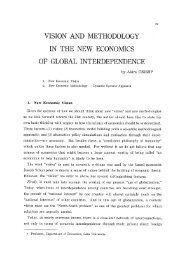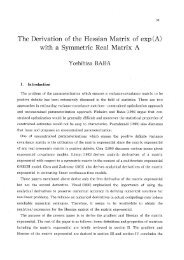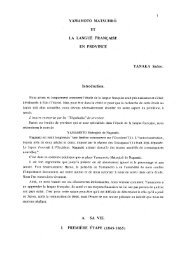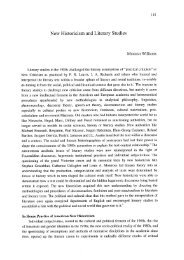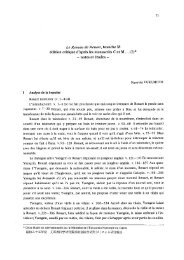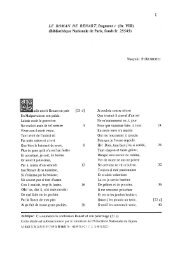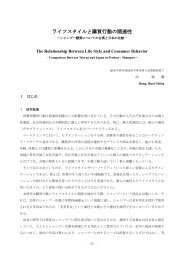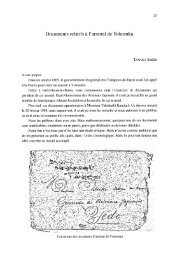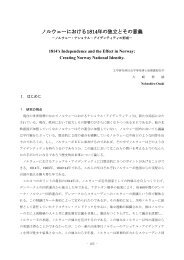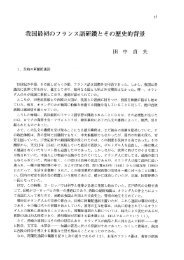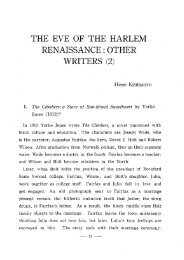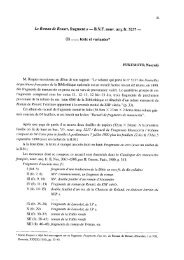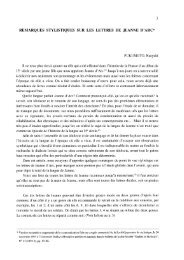Indian Writing in English 1794-2004 - Soka University Repository
Indian Writing in English 1794-2004 - Soka University Repository
Indian Writing in English 1794-2004 - Soka University Repository
You also want an ePaper? Increase the reach of your titles
YUMPU automatically turns print PDFs into web optimized ePapers that Google loves.
College Calcutta (founded <strong>in</strong> 1817 and later called the Presidency College) and was appo<strong>in</strong>ted.<br />
The H<strong>in</strong>du College was the first <strong>English</strong> sem<strong>in</strong>ary <strong>in</strong> Bengal and aimed at provid<strong>in</strong>g European<br />
knowledge with a command of <strong>English</strong>, History and Geography. Quite popular amongst his stu-<br />
dents for his new and spirited method of teach<strong>in</strong>g, Derozio started a study circle and debat<strong>in</strong>g<br />
society that met at his house (later shifted to Manicktala and formalized as the Academic<br />
Association) to take the hunger for knowledge beyond the classroom. The parents of students<br />
objected to Dorozio's unorthodox ways and he was dismissed from his job on 25th April 1831.<br />
Eight months later he died of cholera on 23rd December 1931 and is buried <strong>in</strong> the old cemetery<br />
of Park Street, Calcutta. He was a teenager when he started teach<strong>in</strong>g and less than 22 years old<br />
when his literary and academic career was cut short by death.<br />
In the five years between 1927 and 1831 he had made a name for himself. The discussions<br />
and debates that he organized dur<strong>in</strong>g this time were attended by a host of em<strong>in</strong>ent public figures<br />
<strong>in</strong>clud<strong>in</strong>g the Chief Justice of Calcutta Supreme Court and Alexander Duff the famous mission-<br />
ary." Derozio's voracious read<strong>in</strong>g at the Dhurmatola Academy and after came to his rescue dur-<br />
<strong>in</strong>g these discussions and debates where he and his students referred to historians, philosophers,<br />
scientists, economists and poets such as Robertson, Gibbon, Adam Smith, Jeremy Bentham,<br />
Newton, Davy, Hume, Thomas Pa<strong>in</strong>e, Locke, Reid, Stewart Brown, Byron, Walter Scott and<br />
Robert Burns.'"<br />
Derozio was a great teacher. He gave to his students the ability to th<strong>in</strong>k for themselves and<br />
break the cha<strong>in</strong>s of "antiquated bigotry".'"` He taught them not to accept anyth<strong>in</strong>g without proper<br />
scrut<strong>in</strong>y and judgment. He debated with them and gave references for theism and atheism. He<br />
taught them that a debate for and aga<strong>in</strong>st was a must to arrive at the truth.<br />
His views <strong>in</strong>furiated the custodians of H<strong>in</strong>du College who sought his resignation. In a letter<br />
to H. H. Wilson, the sympathetic Vice President, Derozio answers the three questions posed by<br />
the latter <strong>in</strong> a letter dated April 25, 1831. To the first question: "Do you believe <strong>in</strong> a God?"<br />
Derozio answers: "I have never denied the existence of a god <strong>in</strong> the hear<strong>in</strong>g of any human<br />
be<strong>in</strong>g. If it be wrong to speak at all upon such a subject, I am guilty." To the second question:<br />
"Do you th<strong>in</strong>k the respect and obedience to parents no part of moral duty?" to which he<br />
answers: "For the first time <strong>in</strong> my life did I learn from your letter that I am charged with hav<strong>in</strong>g<br />
<strong>in</strong>culcated so hideous, so unnatural, so abom<strong>in</strong>able a pr<strong>in</strong>ciple. I have always <strong>in</strong>sisted upon<br />
respect and obedience to parents." To the last question: "Do you th<strong>in</strong>k the <strong>in</strong>termarriage of<br />
brothers and sisters <strong>in</strong>nocent and allowable?" to which he responds: —No' is my dist<strong>in</strong>ct reply;<br />
and I never taught such an absurdity." In a bit<strong>in</strong>g criticism of the conservative H<strong>in</strong>du and<br />
rumor-monger<strong>in</strong>g Bengali society of the n<strong>in</strong>eteenth century Derozio concludes: "That I should<br />
be called a skeptic and an <strong>in</strong>fidel is not surpris<strong>in</strong>g, as these names are always given to persons<br />
who th<strong>in</strong>k for themselves <strong>in</strong> religion."''"<br />
After his resignation from the college his <strong>in</strong>fluence grew more rapidly. His disciples, now<br />
called Derozians, part of the `Young Bengal' activism, carried his teach<strong>in</strong>gs with a relentless<br />
fervor to the next generation and laid the foundation of the Bengal Renaissance or Banglar<br />
Renaissance.'" The epithet "Young Bengal" was given to the students of H<strong>in</strong>du College whom<br />
Derozio taught between 1826 and 1831. Derozio gave his students a critical approach to life.<br />
Through examples from history and philosophy, he taught them the process through which<br />
<strong>in</strong>stitutional practices and narrow parochial ideas take root <strong>in</strong> society. His slogan was to live and<br />
185


